Today was the presentation of the 13th edition of the master's degree attached to the Faculty of Marine Sciences, which is taught by ECOAQUA professors at its facilities, in collaboration with the CIHEAM in Zaragoza
The Taliarte Marine Science and Technology Park today hosted the official presentation of the thirteenth edition of the International Master's Degree in Marine Cultures at the University of Las Palmas de Gran Canaria (ULPGC), taught by professors from the Aquaculture Research Group (GIA) of the University Institute for Research in Sustainable Aquaculture and Marine Ecosystems (ECOAQUA), with the collaboration of the International Centre for Advanced Mediterranean Agronomic Studies (CIHEAM) in Zaragoza.
The Master's programme, attached to the Faculty of Marine Sciences, whose classes will begin this week for a group of ten students, is recognised worldwide as the most important one currently taught in Spanish, according to the rector of the ULPGC, Lluís Serra, who presided over the opening ceremony. He also stressed the importance of creating a group that generates interconnections, what is known as ‘scientific diplomacy’ among the 226 graduates that the master's degree has already had since it was founded in 1997, with the aim of developing lines of research and collaboration at an international level.
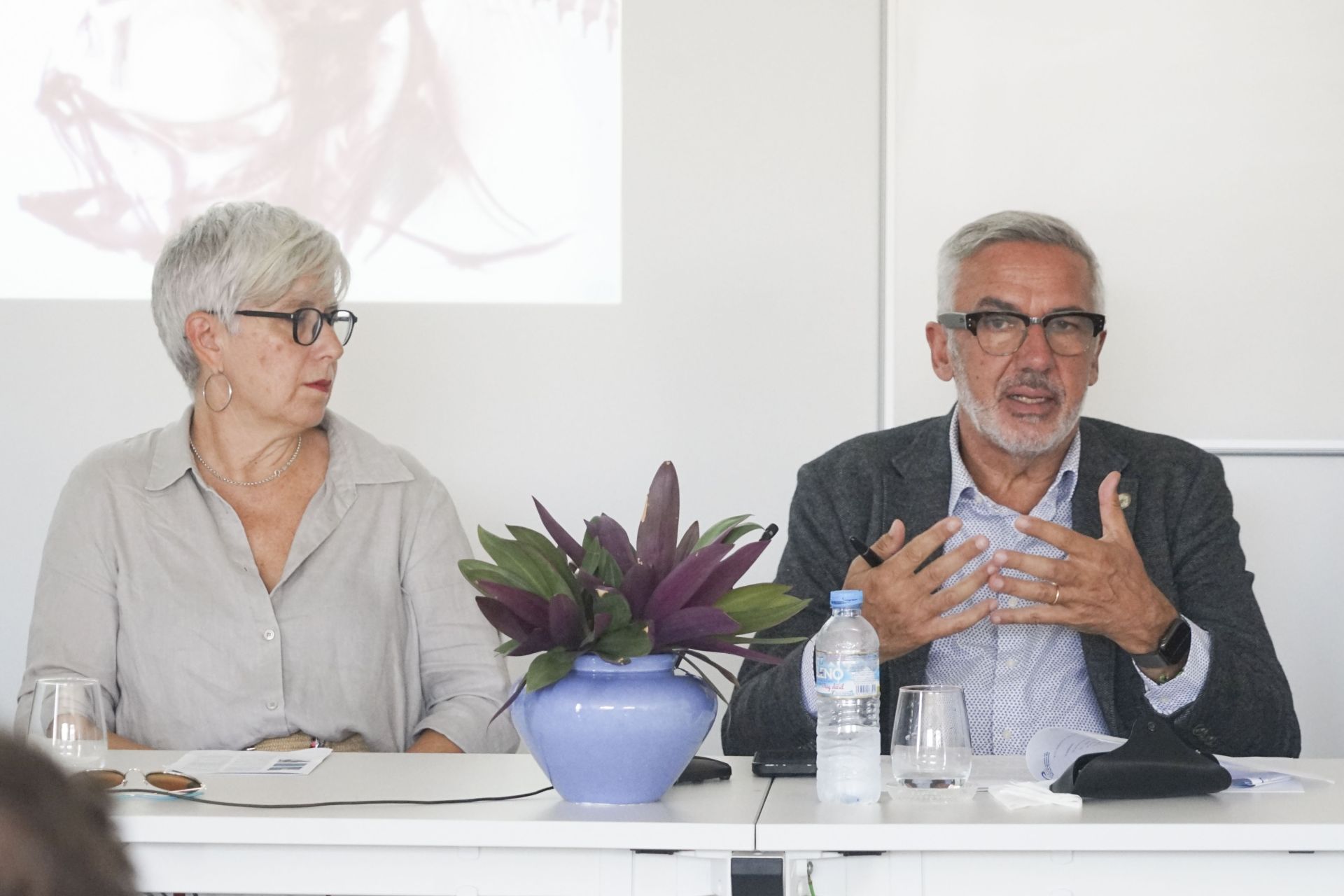
‘I believe that this is a consolidated degree at the ULPGC over the years, thanks to the collaboration of the CIHEAM since its creation, and its strength lies in the possibility it gives us as a university centre, considered one of the 300 most important in the world in the field of aquaculture, to provide innovative and sustainable solutions for the future,’ he explained.
He was joined in Taliarte by the director of the Centre for Advanced Mediterranean Agronomic Studies of Zaragoza, Raúl Compés; the head of the ECOAQUA service, Rafael Ginés; the dean of the Faculty of Marine Sciences of the ULPGC, María Esther Torres; and the director of the master's degree, Félix Acosta.
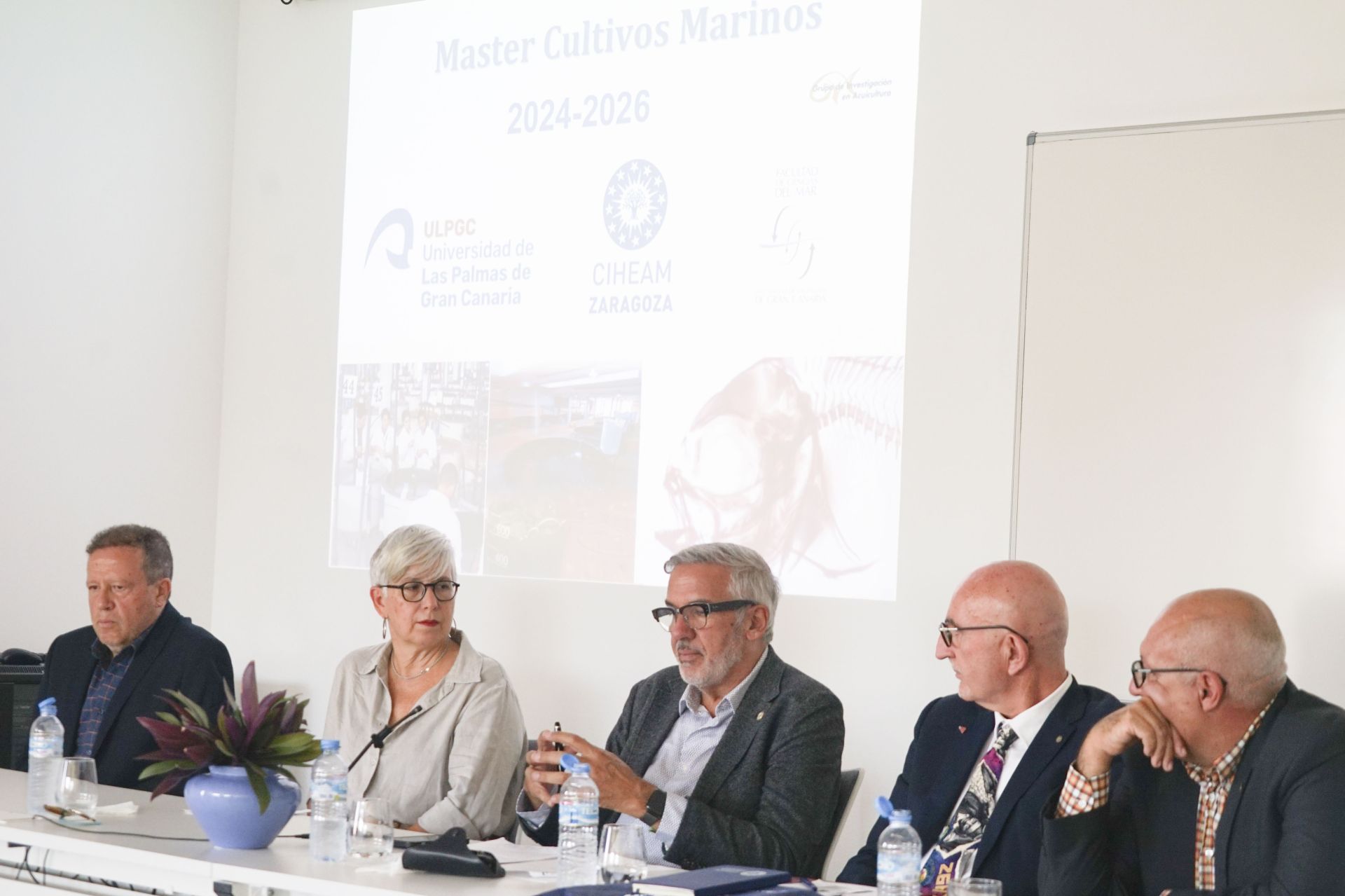
For Raúl Compés, professor at the Polytechnic University of Valencia and head of CIHEAM, a public institution in which 13 Mediterranean countries participate, founded in 1962 with the aim of promoting agro-food cooperation at an international level, generating ‘research networks’, it is very important to continue training ‘technicians of a high scientific level’ little by little because demand is very high and ‘the resources we have at the level of artisanal and industrial fishing are exhausted, so aquaculture is the future’, he affirmed. Hence his commitment to this master's degree with the ULPGC, which connects the Mediterranean with the Atlantic, and which allows the interconnection of students from the CIHEAM, based in Paris, and its four institutes located in Bari (Italy), Montpelier (France), Zaragoza (Spain) and Chania in Crete (Greece).
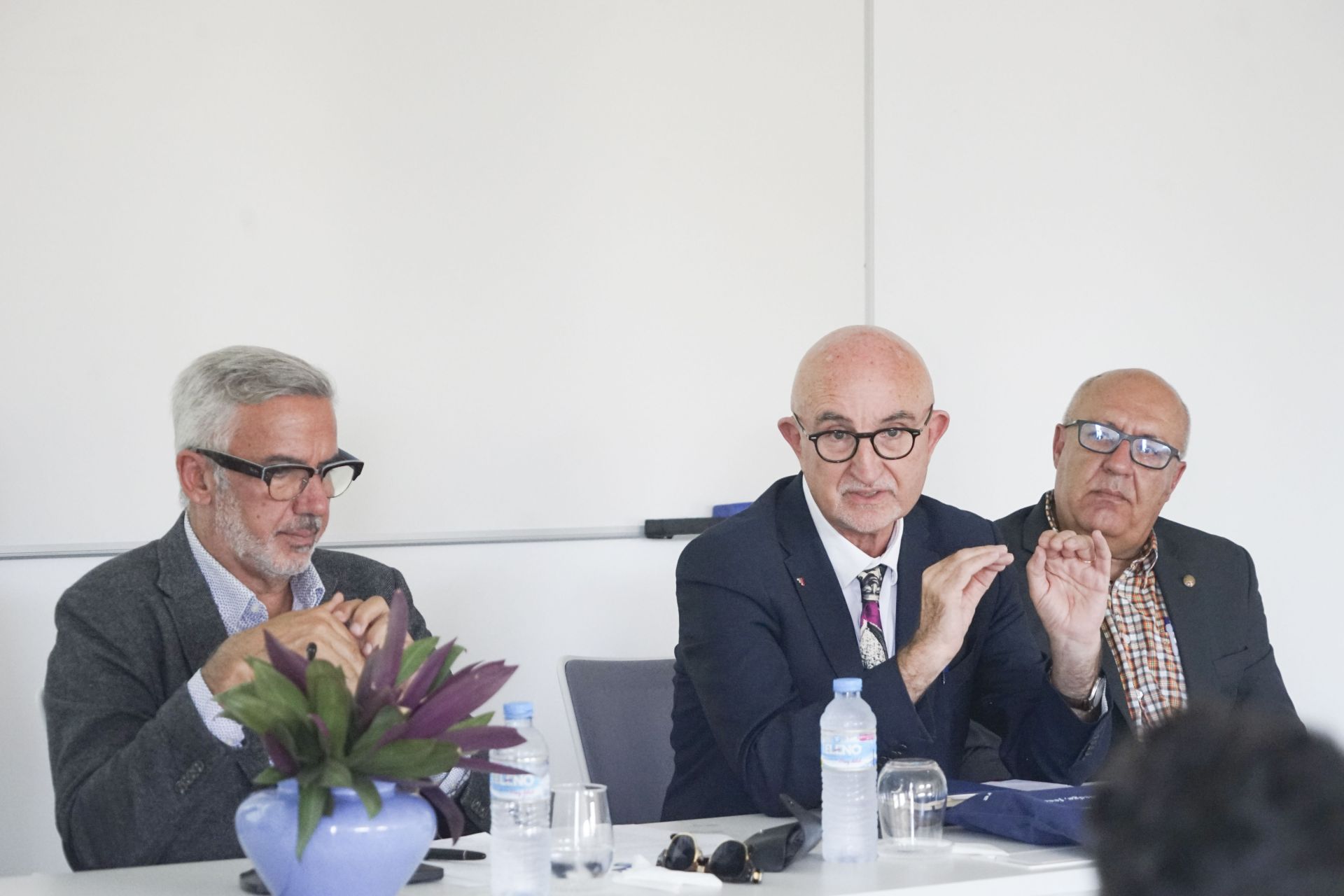
For her part, the dean of the Faculty of Marine Sciences, María Esther Torres, recalled that although in some degrees, depending on the year, the number of students ‘may not be so high’, they serve as a showcase for the ULPGC for its scientific dimension at an international level. This master's degree has always had continuity and recognition, and there is no doubt that in the future you will open doors for us,’ he said, addressing the students, “as you go on to work in the industry or in other institutions, since the theses that you develop with our university in your second year will be milestones and will be directed by prestigious researchers of international recognition in the aquaculture sector,” he explained.
The best aquaculture facilities at university level in Spain
The head of service of the ECOAQUA institute, Rafael Ginés, highlighted how the centre has the best university facilities for scientific research in Spain. ‘It is unusual for a university to have 2,500 square metres dedicated to the integral cultivation of algae, molluscs, crustaceans and marine fish and 500 square metres of laboratories for Nutrition, Histology, Genetics, Reproduction, Pathology and Feed Processing Workshop’, he stressed.
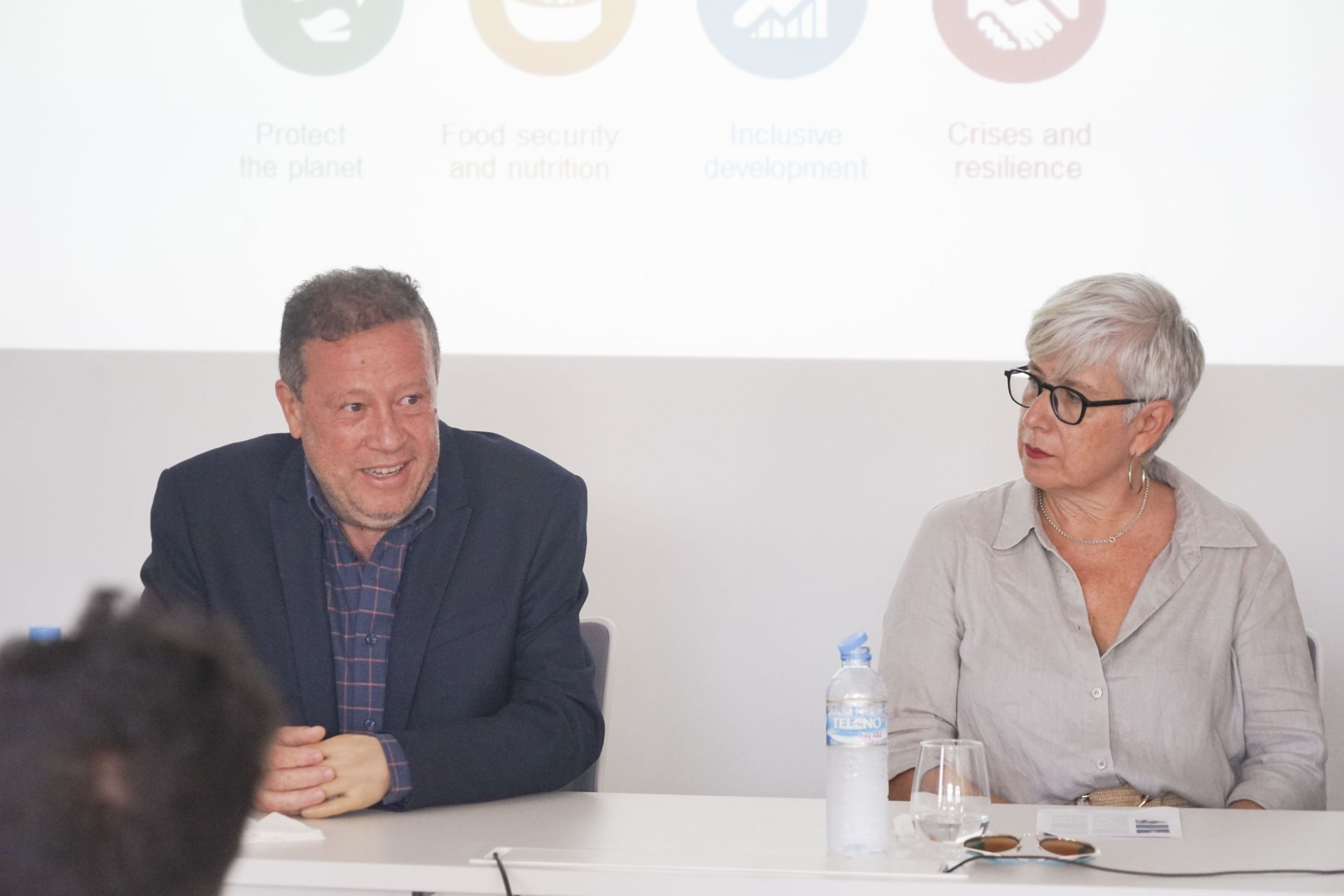
Finally, the director of the master's degree, Félix Acosta, emphasised that ECOAQUA's Aquaculture Research Group (GIA) has led more than 120 aquaculture research projects in collaboration with more than 30 groups from different countries and has advised more than 30 companies in the sector through collaboration agreements, ‘so students will benefit from the group's teaching and research experience and its international and business relations’.
The International Master's Degree in Marine Cultures of the University of Las Palmas de Gran Canaria, which has students from different Spanish universities, as well as from other countries such as Egypt, Morocco, Tunisia, Italy and Ecuador, consists of a first part of Postgraduate Specialisation, made up of 60 ECTS credits, which constitutes the teaching part of the Master's Degree and which will last until June 2026. Upon completion, students who have passed the relevant academic tests will receive the Postgraduate Specialisation Diploma awarded by CIHEAM.
Students will then begin the second part of the Master's Degree, focused on the completion of the thesis of this training (end-of-degree work), which involves an applied approach to research in Aquaculture. The latter will take place between June 2025 and June 2026, after which they will have to make a public defence of their thesis to finally obtain the Master's Degree.
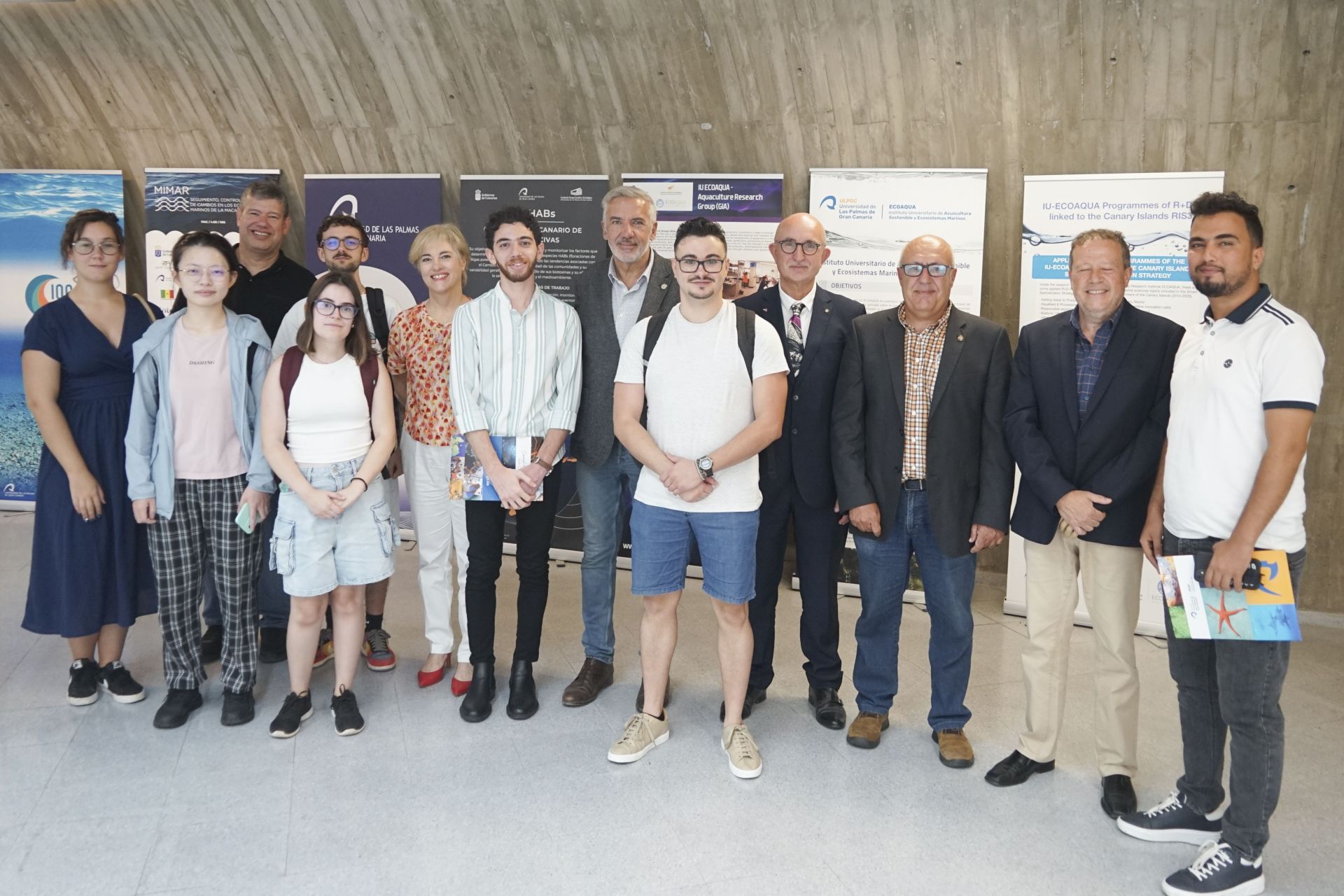
The training acquired during this master's degree qualifies its students not only in professional aquaculture research, but also in professional areas linked to it, such as government administration, management of aquaculture farms or the development of specialised work in pharmaceutical companies, animal feed or aquariums, among other professional paths, although so far and according to data from 2020, more than 50% of the students are engaged in research work.


